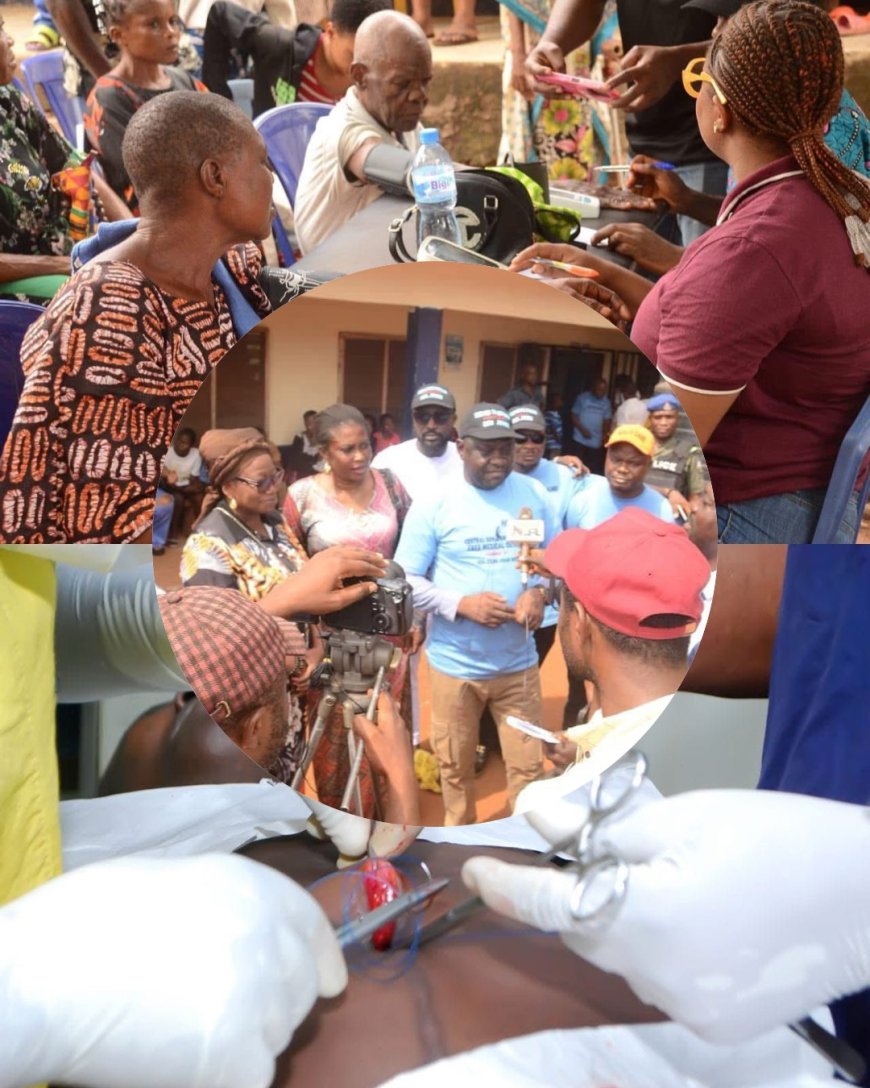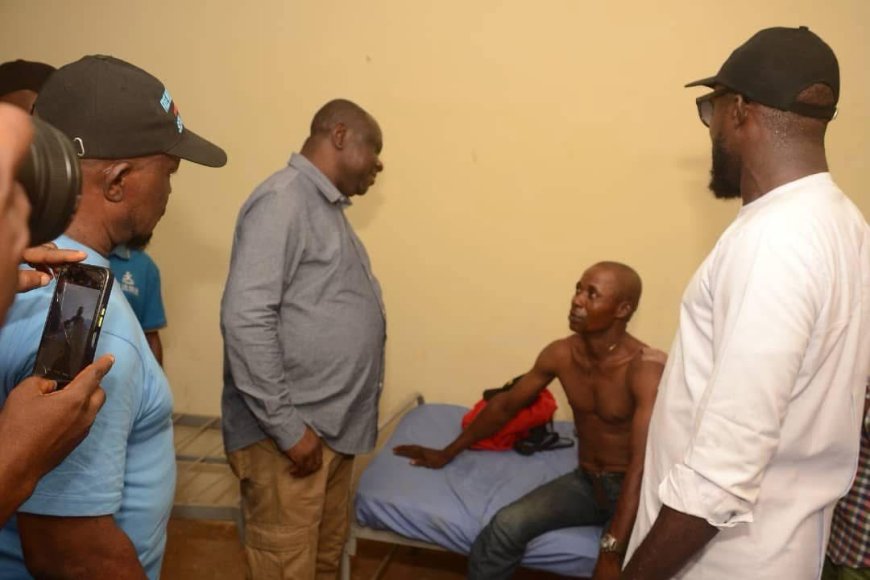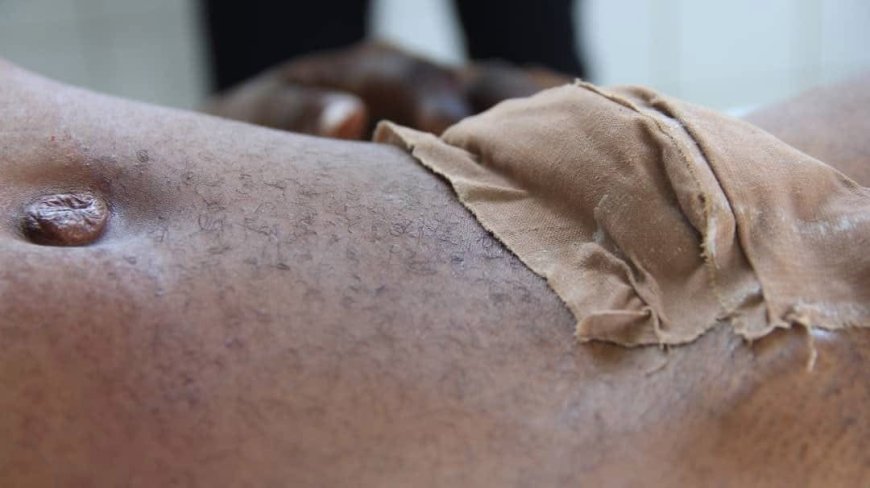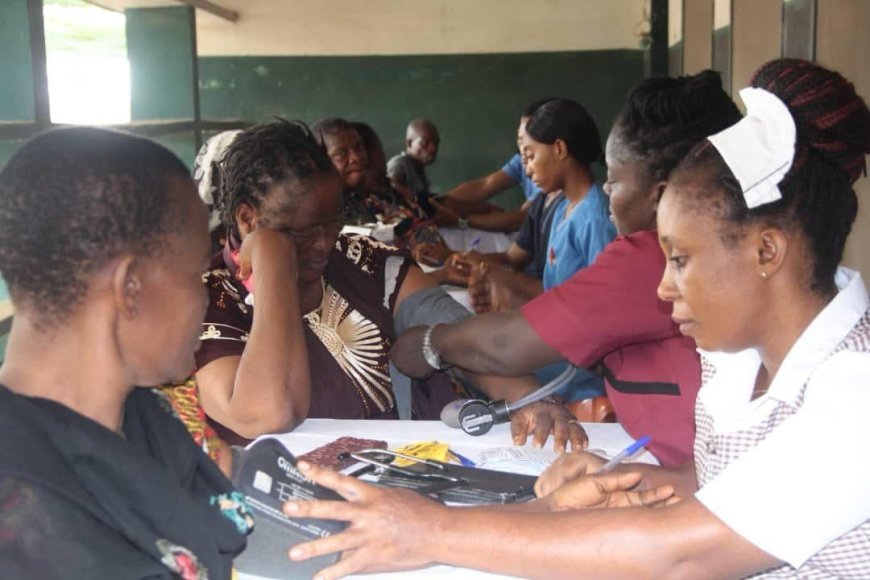Restoring Hope Through Healthcare: How Senator Williams’ Mega Medical Outreach Transformed Lives in C’River Central

For many underserved communities, access to quality healthcare remains a luxury rather than a fundamental right. Year after year, thousands of individuals struggle with untreated ailments, lack of medical interventions, and limited access to even the most basic medications. However, in an inspiring demonstration of leadership and compassion, Senator Eteng Jonah Williams has rewritten the narrative, providing free medical care to over 10,126 individuals in what is now considered one of the most impactful medical outreaches in the region.
The six-day outreach was more than just a temporary relief effort; it was a lifeline for many who had long suffered from preventable illnesses but lacked the means to seek proper treatment. From early morning to late evening, long queues of hopeful beneficiaries stretched across the venue, each person clinging to the possibility of renewed health. Among them was Mrs. Agnes Effiom, a mother of three who had battled high blood pressure for years without access to medication. “I was told my condition needed regular monitoring and medication, but I couldn’t afford them,” she recalled. “Today, I got free consultation, medication, and even counseling on how to manage my condition. I feel like I have been given a second chance at life.”
Unlike many one-time interventions, Senator Williams’ outreach went beyond basic medical consultations. The program was meticulously structured to address multiple healthcare needs, ensuring that every individual who walked through the doors received appropriate care. Out of 10,289 people who registered, an overwhelming 10,126 patients were attended to by healthcare professionals, receiving thorough medical evaluations and expert guidance.
Recognizing the critical importance of child health, the outreach prioritized the deworming of young children, a simple yet powerful intervention in preventing malnutrition and developmental issues. In total, 1,028 children under the age of five were dewormed, reducing their risk of intestinal infections and boosting their overall health.

Beyond consultations, the initiative ensured that lifesaving medications were readily available. Many patients who had struggled to purchase even the most basic drugs were handed free antimalarials, antidiabetics, antifungals, antibiotics, haematinics, antihypertensives, analgesics, immune boosters, and dietary supplements. The relief on their faces was palpable, as they clutched their prescriptions, knowing that their health concerns were finally being addressed.
While medication and consultations were essential aspects of the outreach, one of its most profound contributions was in the area of surgical interventions. For many individuals suffering from conditions requiring surgery, the cost had been an insurmountable barrier. The outreach shattered this barrier, offering free surgical procedures to those in need.
Among the 256 scheduled surgeries, an impressive 235 operations were successfully conducted, restoring health and hope to patients who had once believed they were beyond help. For Mr. Okon Asuquo, a middle-aged trader who had lived with a hernia for years, the surgery was nothing short of a miracle. “I had given up hope because I couldn’t afford the operation. Today, I leave here a different man,” he said with tears in his eyes.
To ensure the best outcomes, 21 complex cases were referred to specialized medical centers, guaranteeing that those who required advanced procedures would still receive proper care.
Beyond treating illnesses, the outreach sought to empower people with knowledge, reinforcing the principle that prevention is just as important as cure. Health education sessions were held throughout the event, covering topics such as disease prevention, proper nutrition, maternal health, and hygiene practices. These sessions equipped community members with practical tools to maintain their health beyond the outreach.

“I learned so much about hypertension today,” said Elder James Etim, a 65-year-old retiree. “I now understand the importance of eating well, exercising, and checking my blood pressure regularly. This knowledge alone is life-saving.”
The success of the outreach was not just measured by the number of beneficiaries, but also by the seamless execution and zero recorded complications or fatalities. The medical professionals, volunteers, and organizers worked tirelessly to ensure quality healthcare services, demonstrating that large-scale free medical initiatives can be both effective and sustainable when properly planned.
As the outreach concluded, discussions on future improvements began. Key recommendations included introducing eye care services with free glasses, engaging pediatric surgeons for children’s specialized needs, and expanding health education efforts to promote long-term disease prevention. Additionally, enhancing publicity with at least a one-month advance notice was proposed to ensure that even more individuals benefit in the future.
Senator Eteng Jonah Williams has not only emerged as a champion of accessible healthcare but has also set a new standard for leadership-driven medical intervention. His unwavering commitment to the well-being of his constituents has left an indelible mark, reaffirming the role of government officials as true servants of the people.

For many beneficiaries, this outreach was more than just a medical program—it was a symbol of hope, compassion, and renewed faith in humanity. And for Senator Williams, this is just the beginning. His vision for a healthier society is one that will continue to unfold, touching lives and transforming communities one medical intervention at a time.
K. A. Etta writes from Ajassor, Etung LGA.














































